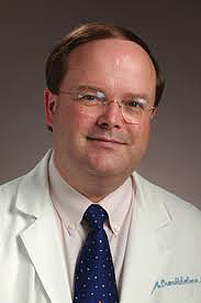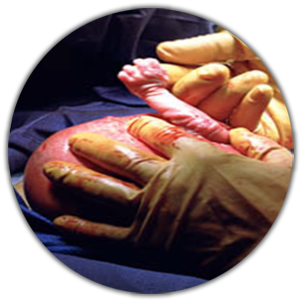Fetal surgery, integrated care bring hope to families
Finding out before birth that a baby has a health problem is a parent’s worst nightmare. Spina bifida, congenital disorders, shared placenta in twins – until recently these diagnoses and myriad others have left parents and obstetricians feeling helpless. But now there is help and hope. The Colorado Institute for Maternal and Fetal Health (CIMFH) at the CU Anschutz Medical Campus provides an advanced, integrated approach to treating moms and babies leading up to and beyond birth, including surgery on the fetus while still in the womb.
Tim Crombleholme, M.D., surgeon-in-chief at Children’s Hospital Colorado Maternal and Fetal Medicine Program
Tim Crombleholme, M.D., surgeon-in-chief at Children’s Hospital Colorado Maternal and Fetal Medicine Program, said the cutting-edge approach to medicine is unique and in high demand.
“The capabilities of this program are available only in four centers throughout the world, and CU is one of them,” Crombleholme said. “It’s grown out of the need for obstetricians to make a diagnosis, but then if you make the diagnosis do you really have to wait until the baby is born? By the time the baby is in the newborn nursery … the damage is already present.”
The institute brings together specialists in all areas of care.
“When we do these procedures, there are as many as 30 people in a room, including the adult specialists and pediatric specialists,” Crombleholme said.
Before the procedures, “the institute holds integrated meetings with all the sub-specialists sitting at the table discussing what it means from their perspective: the cardiologist, the obstetrician, the geneticist, the surgeon,” he said. “Together, they work out a recommendation to present to the family.”
Jim Shmerling, chief executive officer at Children’s Hospital Colorado, introduced the institute to the CU Board of Regents earlier this month.
“This was a very special program and it was the vision of the (University of Colorado School of Medicine), University Hospital and Children’s Hospital Colorado to really achieve something that wasn’t being done,” Shmerling said.
University of Colorado Hospital and Children’s Hospital Colorado developed the strategic plan in 2011 and Crombleholme was recruited that year. “There are only a handful of people in the world – certainly fewer in the country – who can do this type of procedure,” Shmerling said.
Crombleholme founded the Center for Fetal Diagnosis and Treatment at The Children’s Hospital of Philadelphia and the fetal care program at the Cincinnati Children’s Hospital Medical Center and is a pioneer in fetal surgery.
“He was impressed with the people he met and the program. We were very fortunate to recruit him as surgeon-in-chief and the head of this program,” Shmerling said. “We plan to keep him here for the duration.”
The institute is receiving referrals from across the country and around the globe without having advertised the services. In 2011, there were 3,026 CIMFH deliveries at University of Colorado Hospital. In 2013, the unit expanded to 24/7 operations, so that number is projected to be more than 33,000.
Crombleholme said that although the cost for in utero surgery and maternal and fetal care is substantial, it saves a great deal more in the long run in reduced health-care needs as the children thrive.




